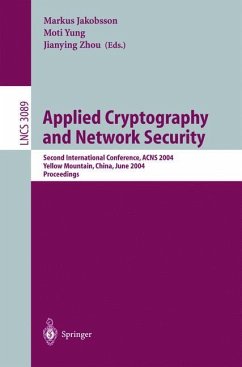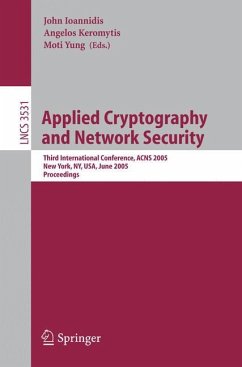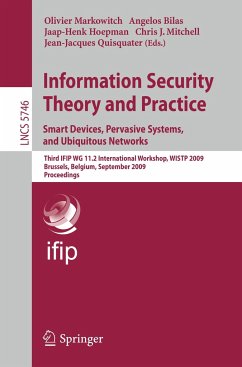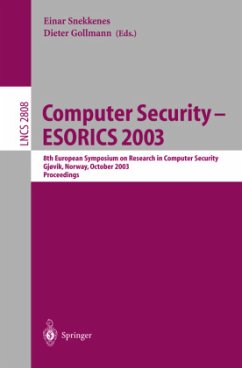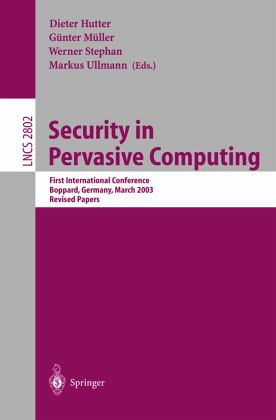
Security in Pervasive Computing
First International Conference, Boppard, Germany, March 12-14, 2003, Revised Papers
Herausgegeben: Hutter, Dieter; Müller, Günter; Stephan, Werner; Ullmann, Markus

PAYBACK Punkte
20 °P sammeln!
This book constitutes the thoroughly refereed post-proceedings of the First International Conference on Security in Pervasive Computing held in Boppard, Germany in March 2003.
The 19 revised full papers presented together with abstracts of 4 invited talks and a workshop summary were carefully selected during two rounds of reviewing and improvements. The papers are organized in topical sections on location privacy, security requirements, security policies and protection, authentication and trust, secure infrastructures, smart labels, verifications, and hardware architectures.
The 19 revised full papers presented together with abstracts of 4 invited talks and a workshop summary were carefully selected during two rounds of reviewing and improvements. The papers are organized in topical sections on location privacy, security requirements, security policies and protection, authentication and trust, secure infrastructures, smart labels, verifications, and hardware architectures.
The ongoing compression of computing facilities into small and mobile devices like handhelds, portables or even wearable computers will enhance ubiquitous information processing. The basic paradigm of such pervasive computing is the combination of strongly decentralized and distributed computing with the help of diversi?ed devices allowingforspontaneousconnectivityviatheInternet.Computerswillbecomeinvisible to the user, and exchangeof informationbetween devices will effectivelybe beyondthe user s control. Assuming a broad usage of more powerful tools and more effective ways to use them the quality of everydaylife will be strongly in?uenced by the dependabilityof the new technology. Information stored, processed, and transmitted by the various devices is one of the most critical resources. Threats exploiting vulnerabilities of new kinds of user interfaces, displays, operating systems, networks, and wireless communications will cause new risks of losing con?dentiality, integrity, and availability. Can these risks be reducedbycountermeasuresto an acceptablelevelor dowe haveto rede?nepolitical and social demands. The objective of this 1st International Conference on Security in Pervasive C- puting was to develop new security concepts for complex application scenarios based on systems like handhelds, phones, smartcards, and smart labels hand in hand with the emerging technology of ubiquitous and pervasive computing. Particular subjects were methodsand technologyconcerningthe identi?cationof risks, the de?nition of security policies, and the development of security measures that are related to the speci?c - pects of ubiquitous and pervasive computing like mobility, communication, and secure hardware/software platforms.




